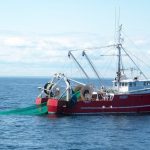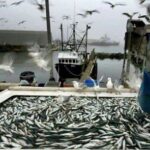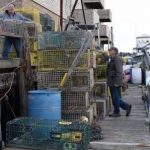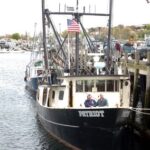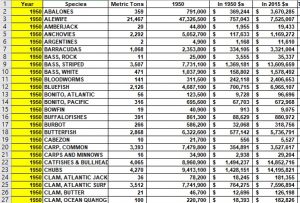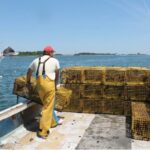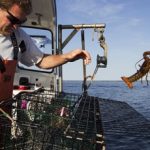Tag Archives: Lummi Nation
Bellingham’s shoreline history: A boom, bust of resource extraction
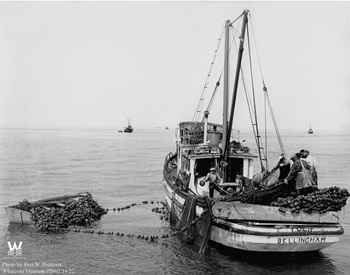 By 1890, the U.S. Census estimated approximately 18,500 people lived in Whatcom County. In the years that followed, additional lumber mills popped up. These included the Puget Sound Mill at the mouth of Padden Creek, the E.K. Wood Mill at Boulevard Park, and the Whatcom Falls Company (Loggie Mill) off Whatcom Creek. Pacific American Fisheries (PAF) first appeared in 1899 to process local salmon, eventually establishing the largest canning operation in the world. Both industries attracted large numbers of Asian immigrant workers, leading later to a significant shift in culture — along with significant racist worker backlash — in the region. The rich salmon runs also attracted canners and fishermen from Croatia, Finland and Ireland. Photos, >>click to read<< 09:20
By 1890, the U.S. Census estimated approximately 18,500 people lived in Whatcom County. In the years that followed, additional lumber mills popped up. These included the Puget Sound Mill at the mouth of Padden Creek, the E.K. Wood Mill at Boulevard Park, and the Whatcom Falls Company (Loggie Mill) off Whatcom Creek. Pacific American Fisheries (PAF) first appeared in 1899 to process local salmon, eventually establishing the largest canning operation in the world. Both industries attracted large numbers of Asian immigrant workers, leading later to a significant shift in culture — along with significant racist worker backlash — in the region. The rich salmon runs also attracted canners and fishermen from Croatia, Finland and Ireland. Photos, >>click to read<< 09:20
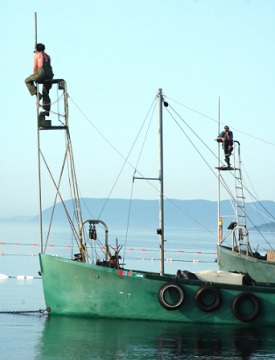
On the Puget Sound, the Women Whose Lives and Work Revolve Around Salmon
In the town of Bellingham, Washington, everyone knows when the salmon run come fall. Shimmery silvers and chum salmon break the chilly water’s surface with their heads, as they move through the Puget Sound and tributary rivers to their spawning grounds. Locals buzz, telling one another when they’ve seen them, admiring the fish on their journey. But for Ellie Kinley, this isn’t just a fall spectacle. She thinks about these fish 365 days a year. There’s a strong and sometimes overlooked community of fishing families here. The Lummi have the largest tribal fishing fleet in the nation, according to Kinley; the port is also home to fishing families, native and non-native alike, who use Bellingham as their home base between fishing trips to Alaska and California. Photos, >click to read< 17:44
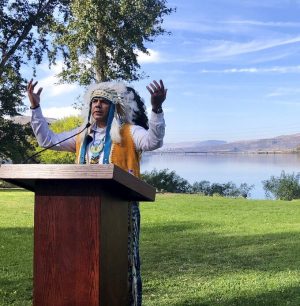
Pacific Northwest Tribes Want Columbia River Dams Razed
Two Pacific Northwest tribes on Monday demanded the removal of three major hydroelectric dams on the Columbia River to save migrating salmon and starving orcas and restore fishing sites that were guaranteed to the tribes in a treaty more than 150 years ago.,, Proposals to merely curtail operations, let alone remove the structures, are controversial, and the prospects of the Columbia dams being demolished any time soon appear nonexistent. But tribal leaders said at a news conference along the Columbia River that the Treaty of 1855, in which 14 tribes and bands ceded 11.5 million acres to the United States, was based on the inaccurate belief that the United States had a right to take the land. >click to read< 10:18
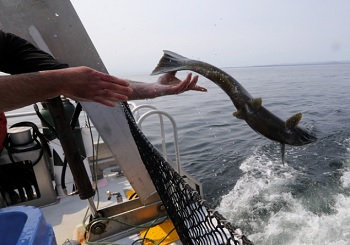
Dosed salmon, clipped fins, a ‘dinner bell’: How far is too far in helping starving orca?
The emergency effort to save a critically ill orca whale is an experiment without precedent. An international team of scientists is piloting techniques to treat a wild, free-swimming orca, one of the largest predators on Earth. The effort includes serving up live fish pumped with medicine and playing a unique tone that one researcher likened to a “dinner bell.” A federal permit approved Aug. 8 provides the clearest look yet at the details of an operation that raises questions even for those involved about the proper limits of human intervention. >click to read<17:39
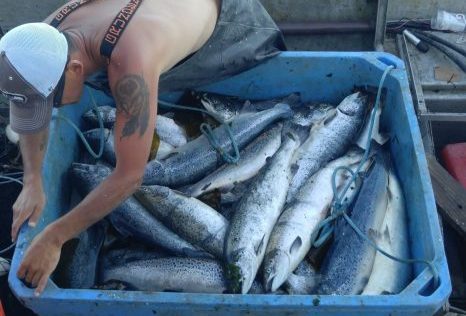
Company offered money for Lummi Nation’s silence about net pens, letters show
Cooke Aquaculture offered to pay a premium price for Atlantic salmon caught by the Lummi Nation after a major spill from the company’s Cypress Island fish farm if the tribe would not advocate getting rid of net pen aquaculture. The tribe tartly rejected the offer. “Your demand to keep quiet for a few extra dollars is insulting,” Timothy Ballew II, chairman of the Lummi Indian Business Council, responded in a Sept. 14 letter. Nell Halse, vice president for communications for Cooke, said Wednesday the offer “was not an attempt to muzzle or insult the Lummi Nation, but rather an effort to negotiate toward common ground and respect the interests and concerns of both parties at the table …” click here to read the story 10:13
Lummi chairman calls bribery attempt ‘insulting and preposterous’ – click here to read the story
Fugitive Farmed Atlantic salmon ‘heading to every river in Puget Sound’
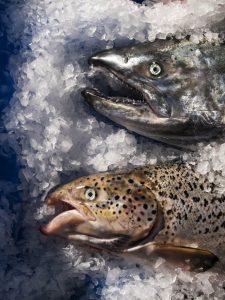 The Lummi Nation is marshaling a mop-up of thousands of fugitive Atlantic salmon in the tribe’s territorial waters, and the Swinomish chairman has called for a shutdown of the farmed-salmon industry in Puget Sound after last weekend’s spill. Swinomish fishermen caught farmed Atlantic salmon in the Skagit River on Wednesday night, as the fish continued to disperse through the Puget Sound, said Brian Cladoosby, chairman of the Swinomish Indian Tribal Community. He also received a report of an Atlantic salmon caught off Alki Point on Thursday afternoon. “These fish are headed to every river in Puget Sound,” Cladoosby said. “We have been saying all along it was not a question of if, but when, this would happen. click here to read the story 23:27
The Lummi Nation is marshaling a mop-up of thousands of fugitive Atlantic salmon in the tribe’s territorial waters, and the Swinomish chairman has called for a shutdown of the farmed-salmon industry in Puget Sound after last weekend’s spill. Swinomish fishermen caught farmed Atlantic salmon in the Skagit River on Wednesday night, as the fish continued to disperse through the Puget Sound, said Brian Cladoosby, chairman of the Swinomish Indian Tribal Community. He also received a report of an Atlantic salmon caught off Alki Point on Thursday afternoon. “These fish are headed to every river in Puget Sound,” Cladoosby said. “We have been saying all along it was not a question of if, but when, this would happen. click here to read the story 23:27
For Lummis, fishing is more than a living — it’s a way of life
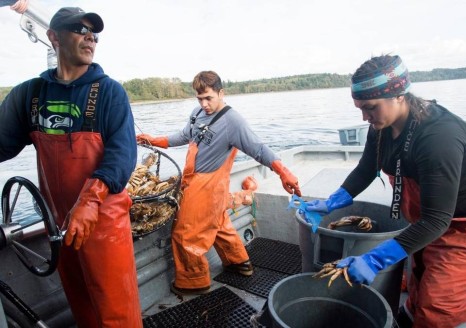 Members of Lummi Nation say that for them, fishing is different. Tribal and nontribal fishers alike must keep to the seasons and mind their catch quotas. Still, for most Washington residents, fishing is a privilege granted by the state government, said Jay Julius, a Lummi member who has a seat on the tribe’s council. The tribe, on the other hand, has been fishing for 150 generations, Julius said. “To us, culture is fish and fish is culture,” he said. “It’s more than a privilege, it’s who we are. “It’s in our DNA.” Read the rest here 13:24
Members of Lummi Nation say that for them, fishing is different. Tribal and nontribal fishers alike must keep to the seasons and mind their catch quotas. Still, for most Washington residents, fishing is a privilege granted by the state government, said Jay Julius, a Lummi member who has a seat on the tribe’s council. The tribe, on the other hand, has been fishing for 150 generations, Julius said. “To us, culture is fish and fish is culture,” he said. “It’s more than a privilege, it’s who we are. “It’s in our DNA.” Read the rest here 13:24

































